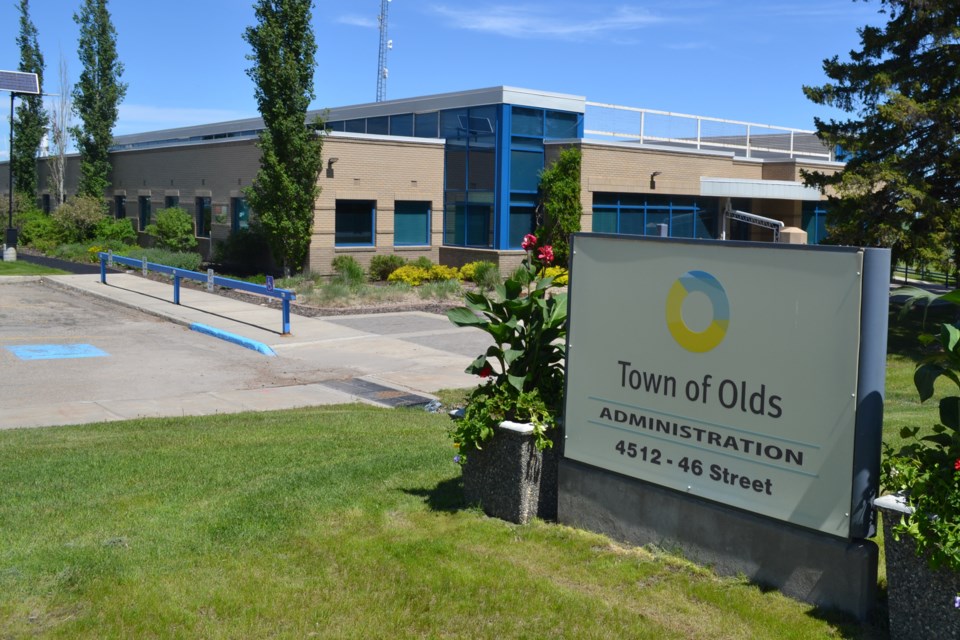OLDS – The provincial government wants municipalities like Olds to help battle wildfires but has cut back on the funding for that, putting the town in a real bind, chief administrative officer Brent Williams says.
Williams made that statement during town council’s June 9 meeting.
“The province is still relying heavily on municipalities to provide these services, oftentimes very far from their home municipality, stretching their own coverage,” he said.
He noted the Olds Fire Department sent a senior officer to the Grande Prairie area last week for that very purpose.
“Kudos to the fire department for always helping out in these times of need across the province,” Williams said.
“Obviously, we're happy to help, but the lack of investment in wildfire and firefighting capacity of the province is somewhat concerning, in that it's stretching municipal resources or relying so heavily on them.”
Williams said it’s about nine years since the Fort McMurray wildfire, which, he said, “kicked off, I think, nine consecutive years of significant wildfire issues in Alberta.”
Williams said the provincial government has cut capital funding that the municipality uses to buy things like fire trucks and fire suppression equipment “at the same time as it is asking us to do more.”
He said that simultaneously, the provincial government has reduced the reimbursement rate they pay for fire trucks.
Williams said about three years ago, the provincial government established a new wildfire mutual aid or deployment rate, which, he said, “is roughly 50 per cent of what it once was.”
At the same time, Williams said, EMS (the ambulance service) is facing a “growing, consistent increase in medical responses.”
“Again, something that they're trained to do, and we're happy to do it, but it's not the municipality’s job to deliver health-care services,” Williams said.
“And that's becoming more and more commonplace in Olds and certainly across the province, without any reimbursement whatsoever.”
He said that has an effect on property tax dollars “because of ambulance shortages.”
“So it's something to for council to be aware of, and perhaps should you see fit to discuss how it fits into advocacy priorities with the upcoming corporate plan review and what-have-you,” Williams said.
Coun. Heather Ryan agreed with Williams’ assessment of the fire funding situation.
“I agree totally with what CAO Williams had mentioned with regards to the lack of investment in the wildfires,” she said.
“We do need equipment. This is the time to invest in our communities, as opposed to cutting back.”
Ryan said she believes the provincial government is “moving towards looking at this,” because of a report on the matter crafted by Rural Municipalities of Alberta and Alberta Municipalities.
“There's been a group that has been established, with firefighters from different communities, to further investigate the wildfire situation and create a sort of a management board or something,” she said.
Ryan also agreed with Williams’ concerns regarding EMS.
“Those are always things that I can bring back to the Alberta municipalities Infrastructure Committee at our next meeting too. We follow and we track all the resolutions that have been made and we look at what our outcomes have been,” she said.
The Albertan contacted Alberta Wildfire for comment. Here is their reply from Alberta Wildfire provincial information officer Melissa Story:
"Alberta Wildfire’s top priority is the safety of Albertans and their communities. The government added additional firefighting crews after the record-breaking 2023 wildfire season that saw over two million hectares of area burned.
"The province responds to wildfires in the Forest Protection Area from the air as well as ground. Alberta Wildfire introduced night operations in 2022 to enable around the clock operations when fire behaviour is typically lower and firefighting tactics are more effective. Since the introduction, Alberta Wildfire has added additional helicopters to support night operations.
"Alberta introduced a reporting tool to help municipalities and Alberta Wildfire share wildfire information outside the Forest Protection Area. Mutual aid agreements are in place to support municipalities outside the Forest Protection Areas.
"The community fireguard program is in place to create a fuel-free zone around communities to mitigate the risk of a wildfire to communities. Fireguards can also enhance wildfire suppression efforts by providing safe and strategic locations for wildland firefighters to respond from.
"Continuing to work together with municipalities in Alberta will help strengthen the provincial wildfire response."


